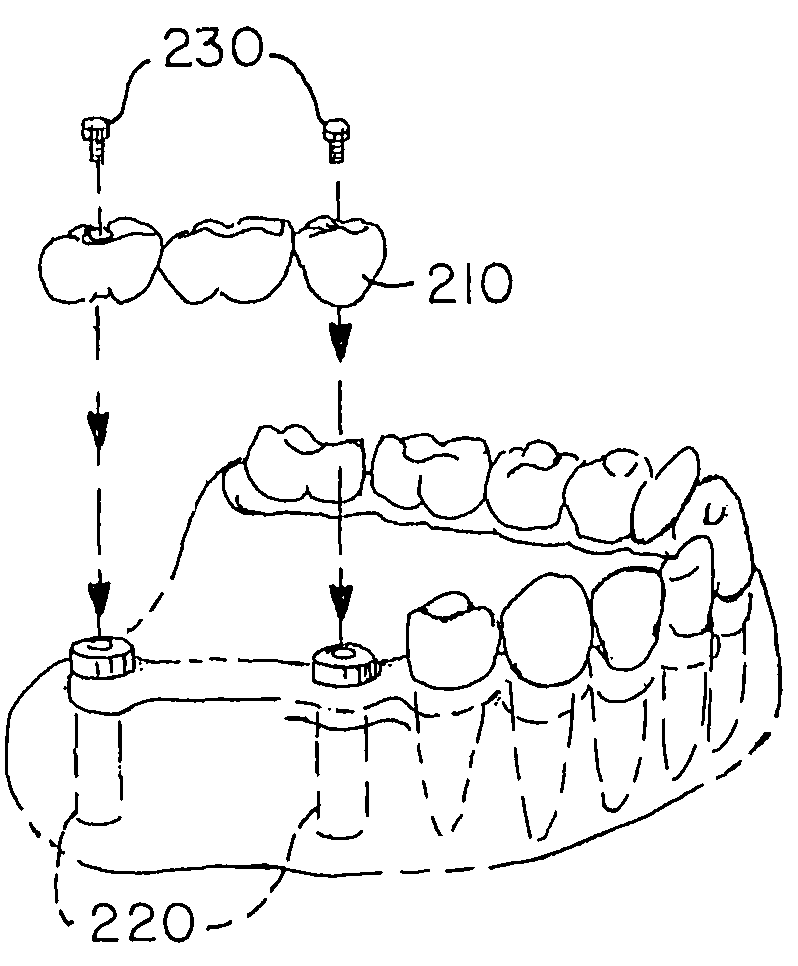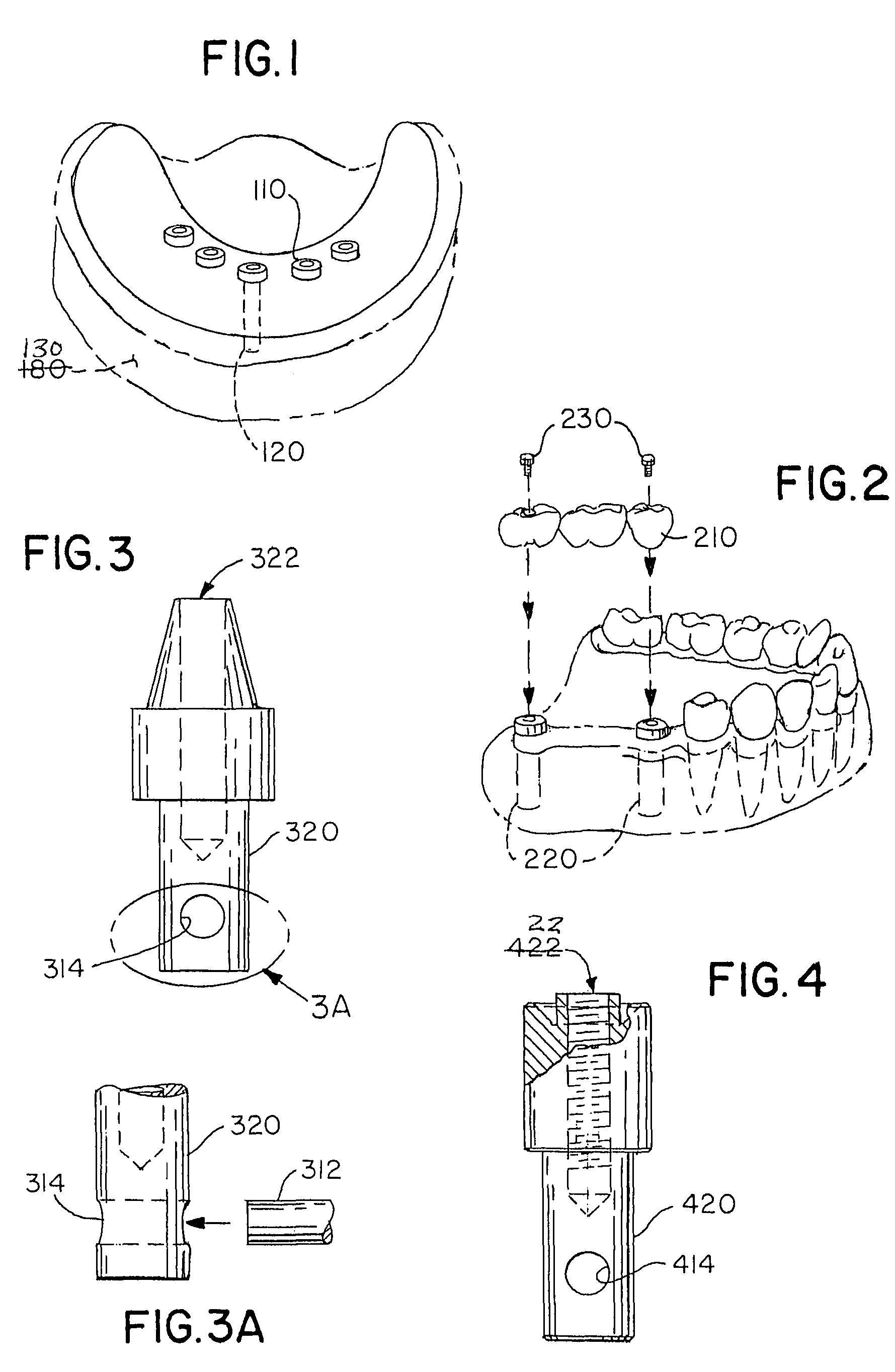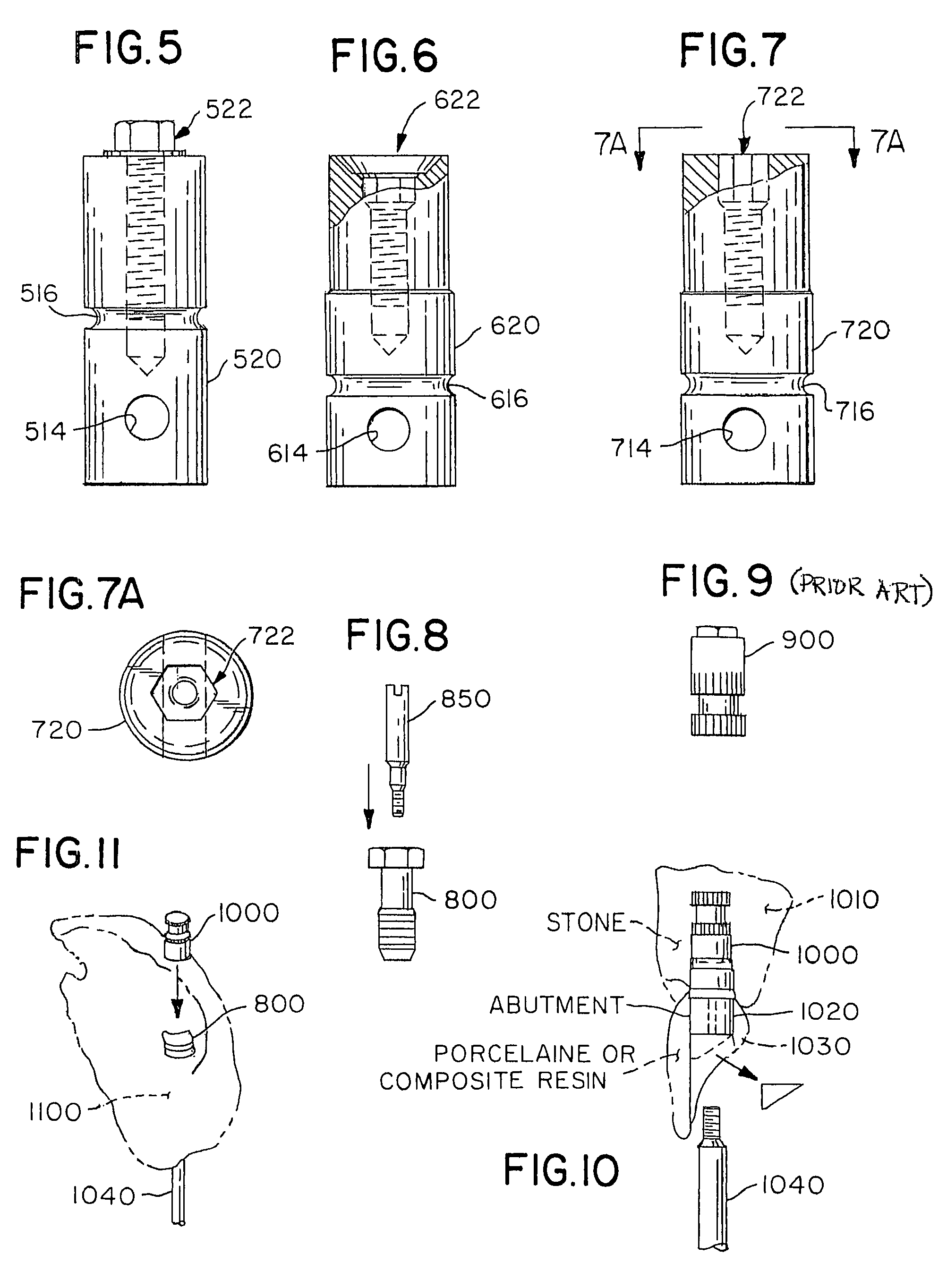Accurate analogs for prostheses using computer generated anatomical models
an anatomical model and accurate technology, applied in the field of dental or cranial prosthesis construction, can solve the problems of screw breaking inside the implant, not many options for its repair, and damage to the implant or abutmen
- Summary
- Abstract
- Description
- Claims
- Application Information
AI Technical Summary
Benefits of technology
Problems solved by technology
Method used
Image
Examples
example
[0105]In the single tooth prosthetic work, the impression is taken from the fixture level. As shown in FIG. 8, one type of conventional impression coping 800 has an internal hexagon at the base, which corresponds to the hexagon of the abutment. The coping has depth indications for assessment of proper abutment size, 2 mm, 3 mm, 4 mm, and 5 mm. The upper margin of the abutment-like part indicates 6 mm. The impression coping is typically made of titanium.
[0106]The impression coping is used together with a special guide pin (e.g., a DCA 098), 850, for a single tooth (the guide pin used to secure the prosthesis to the implant typically has a different thread).
[0107]Typically, in the laboratory, any undercuts of the impression coping are blocked out before pouring the impression (including the depth indications). This blocking is especially important when the longest abutment is used. This precaution prevents fracturing the cast when separating the model and the impression coping.
[0108]D...
PUM
 Login to View More
Login to View More Abstract
Description
Claims
Application Information
 Login to View More
Login to View More - R&D
- Intellectual Property
- Life Sciences
- Materials
- Tech Scout
- Unparalleled Data Quality
- Higher Quality Content
- 60% Fewer Hallucinations
Browse by: Latest US Patents, China's latest patents, Technical Efficacy Thesaurus, Application Domain, Technology Topic, Popular Technical Reports.
© 2025 PatSnap. All rights reserved.Legal|Privacy policy|Modern Slavery Act Transparency Statement|Sitemap|About US| Contact US: help@patsnap.com



